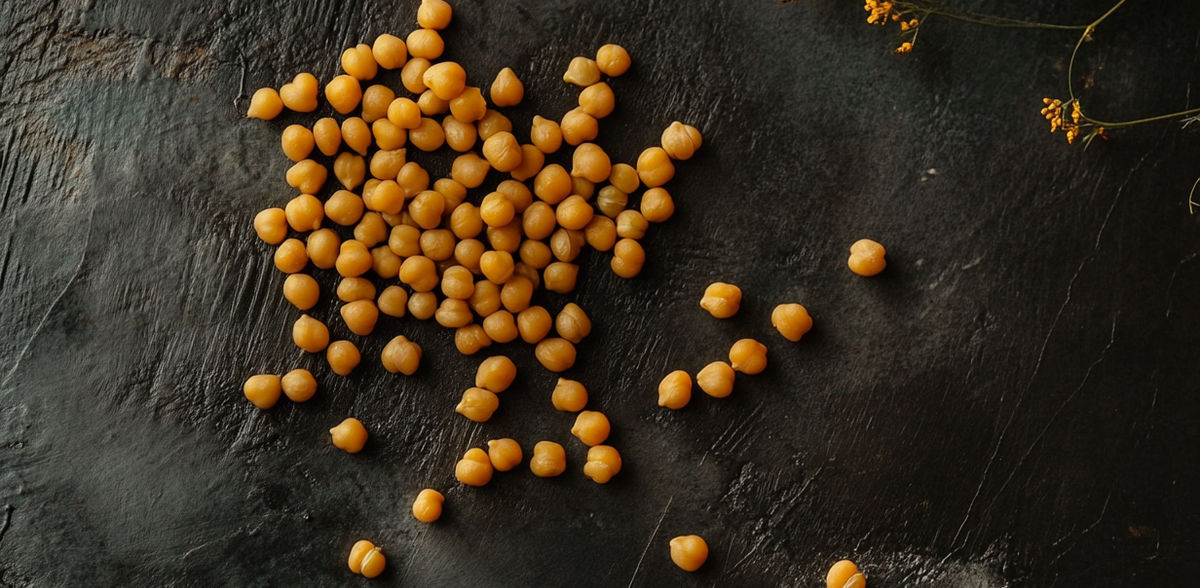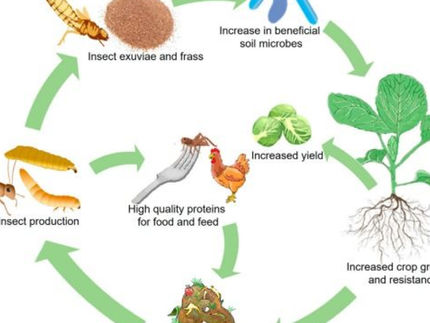Chickpea in danger!
Plant viruses threaten superfoods in Germany
The research team led by plant virus researcher Dr. Björn Krenz from the Leibniz Institute DSMZ-German Collection of Microorganisms and cell cultures GmbH in Braunschweig has examined chickpeas grown in Germany for infections with plant viruses. For the first time, the researchers were able to prove that the superfood is infected with various plant viruses. The researchers recently published their findings in the renowned Journal of Plant Diseases and Protection.
Plant viruses pose a threat to chickpea cultivation

Dr. Björn Krenz, Head of the Department of Plant Viruses at the Leibniz Institute DSMZ
The research team, consisting of experts from the Plant Viruses Department of the Leibniz Institute DSMZ, the Julius Kühn Institute (JKI) and the Leibniz Institute for Agricultural Landscape Research (ZALF), studied various chickpea fields in Saxony-Anhalt and Brandenburg over a period of two years. They discovered the Pea necrotic yellow dwarf virus (PNYDV) in chickpeas for the first time in Germany - a virus that is already present in other legumes such as peas and can lead to considerable yield losses there. The infections manifested themselves, for example, by yellowing of the leaves or growth inhibition. The frequency of multiple infections, in which plants were affected by several viruses at the same time, was particularly alarming. "Our results indicate that chickpeas in Germany are exposed to a high infection pressure - especially when grown in the vicinity of pea fields, which can also be infected by these viruses. These initial findings make it clear that the cultivation of chickpeas in Germany is not without its challenges," summarizes Dr. Björn Krenz, Head of the Plant Viruses Department at the DSMZ.
The future of chickpeas in Germany
The findings of the study are an important step towards developing more resistant chickpea varieties in the future and devising integrated plant protection strategies. After all, robust plants that can withstand viruses are needed to meet the growing demand for regionally produced chickpeas in the long term. "Our research shows once again how essential cooperation between research institutes such as the DSMZ, ZALF and JKI is in order to develop practical solutions for agriculture," summarizes plant virologist Björn Krenz. Future research should focus more on identifying resistant chickpea varieties and testing alternative cultivation and control strategies. One promising approach could be the targeted breeding of virus-resistant varieties, combined with the use of natural enemies of virus-transmitting insects. Targeted screening for virus tolerance at an early stage of breeding could help to exclude susceptible varieties at an early stage. Virus screening of chickpea market varieties would also be useful in order to provide farmers with well-founded selection criteria for resistant varieties. "In view of the increasing demand for regionally produced pulses, it will be crucial that politics, science and agriculture work closely together to enable sustainable production," concludes Krenz. The current research results provide an important basis for future measures, because healthy plants are the basis of successful agriculture.
Note: This article has been translated using a computer system without human intervention. LUMITOS offers these automatic translations to present a wider range of current news. Since this article has been translated with automatic translation, it is possible that it contains errors in vocabulary, syntax or grammar. The original article in German can be found here.
Most read news
Other news from the department business & finance

Get the food & beverage industry in your inbox
By submitting this form you agree that LUMITOS AG will send you the newsletter(s) selected above by email. Your data will not be passed on to third parties. Your data will be stored and processed in accordance with our data protection regulations. LUMITOS may contact you by email for the purpose of advertising or market and opinion surveys. You can revoke your consent at any time without giving reasons to LUMITOS AG, Ernst-Augustin-Str. 2, 12489 Berlin, Germany or by e-mail at revoke@lumitos.com with effect for the future. In addition, each email contains a link to unsubscribe from the corresponding newsletter.



























































